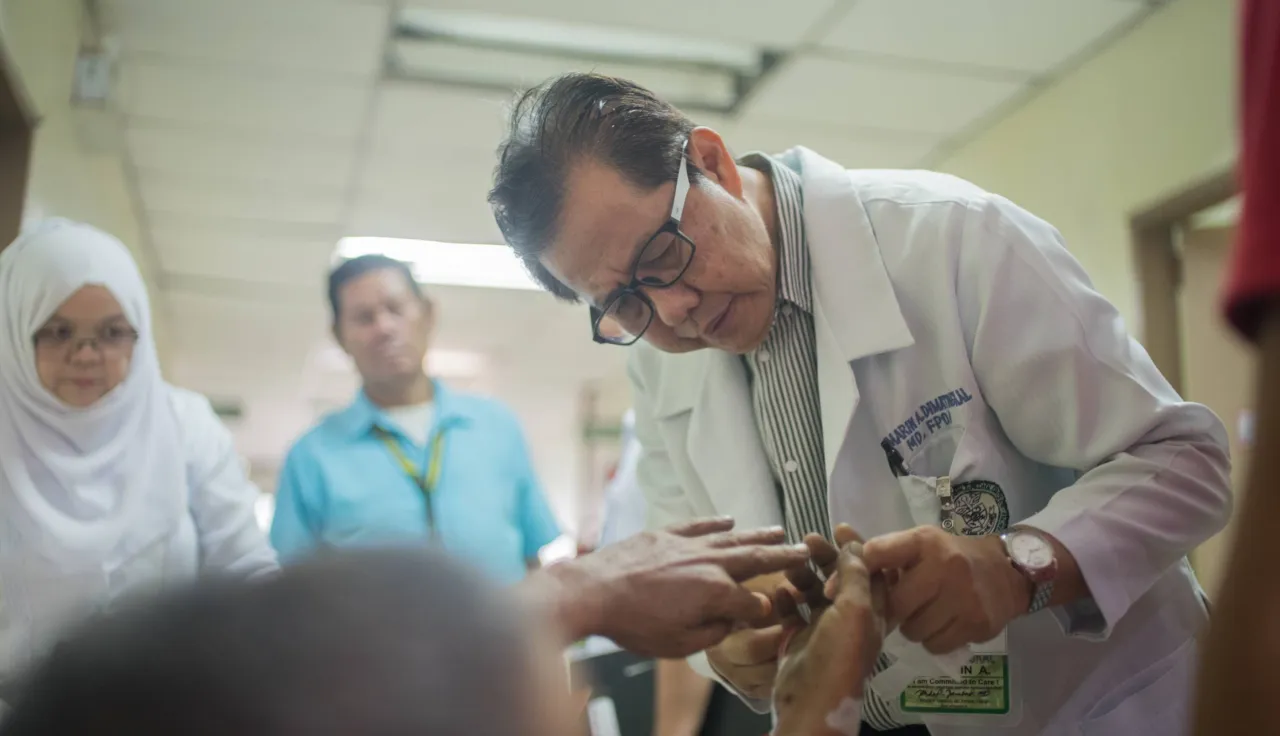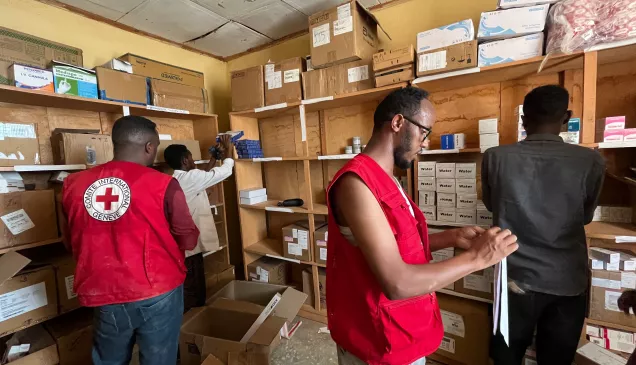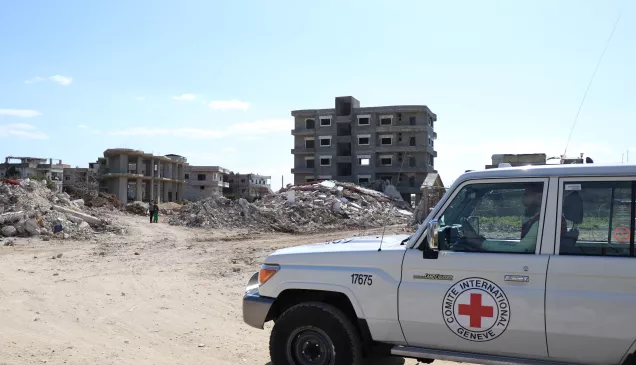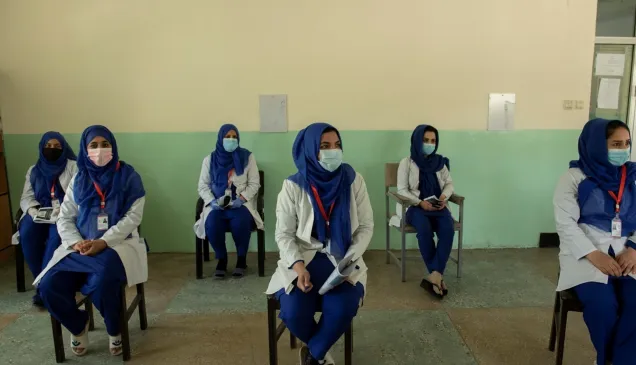Philippines: Tireless doctor treats without any breaks or bias

Dr Dimarin Dimatingcal is 63 and retirement is not a thought crossing his mind. There are also no off days or weekends in his books. For the last 25 years, every day Dr Dimatingcal has been walking the corridors of Cotabato Regional Medical Centre (CRMC), Philippines, doing his rounds with a smile, listening intently to his patients and ensuring they receive the right care.
He performs two or three surgeries daily and sees up to 60 patients on Wednesdays. Dr Dimatingcal, who recently participated in a trauma training course organized for health-care professionals by the International Committee of the Red Cross (ICRC), has one motto to live by – patients come first.
Setting aside his own needs and leaving a lucrative private practice to join CRMC in 1993, Dr Dimatingcal is trying to bridge a wide gap in health care in the Philippines. Till 2018, he was the only orthopaedic surgeon in CRMC, a public hospital serving patients across Central Mindanao. The medical centre is among the few public hospitals that offer orthopaedic treatment in the country.
Deep desire to help
“I decided to move to CRMC to reach more patients when I realized that I was the only orthopaedic surgeon here in Cotabato,” he says. A deep desire to help people is what moved him to take the step.
“The noblest thing for me is to help people improve their lives. Seeing patients walk again gives me joy,” says the doctor. If he had not left private practice, Dr Dimatingcal says he would have retired by now and travelling the world.
“But I believe that life should have purpose. Mine is to help others. My patients give me strength and motivation,” he says.
Gap in health care
Caught in the middle of armed conflict, many people are injured in bomb explosions or hit by stray bullets. Loss of limbs or serious bone and muscle deformities are common and require expert care. However, without orthopaedic surgeons in public hospitals, patients are forced to seek treatment in private facilities. Unable to afford the expensive treatment, some choose not to seek help at all and jeopardize their lives.
“Some public hospitals lack facilities and equipment. Some don’t have the budget to adequately treat patients. As a result, it’s difficult to respond to the surge of patients affected by conflict,” says Dr Dimatingcal.
Treating young and old patients alike, Dr Dimatingcal particularly remembers a one-year-old who was caught in the crossfire. “My heart bleeds whenever I see young patients suffering. These children have nothing to do with the fighting,” he says.
No discrimination
Dr Dimatingcal points that another challenge facing health-care professionals in conflict zones is how to treat patients who are part of an armed group. He is categorical that there should be no discrimination based on the background of patients.
"Health-care providers are expected to help all patients and treat everyone humanely. We do not choose who to help, we don't discriminate. When parties to a conflict step into a hospital for treatment, whether they are part of the government forces or an armed group, they become non-combatants. They all deserve health care," he says.
Sharing from his years of experience, Dr Dimatingcal says in the early 1990s, he observed that very few members of armed group visited the hospital for surgery or treatment because they were scared of not getting equal treatment. But that has changed over the years and they have also started seeking help.
Tomorrow, Dr Dimatingcal will once again rise early and spend most of his hours at the hospital. “As long as my patients need me, I will be here,” he says with a smile.
The ICRC
The ICRC is an independent humanitarian organization that strives to assist and protect people affected by armed conflict and other violence. Committed to ensuring that people affected by conflict get basic health care that meets internationally-recognized standards, the ICRC conducts various training programmes for health-care workers and supports hospitals and facilities by providing medicines and other supplies.
Given their crucial role, health-care workers and facilities must be respected and protected from becoming targets. Health Care in Danger (HCiD) is an initiative of the International Red Cross and Red Crescent Movement to make access to and delivery of health care safer in armed conflict or other emergencies.



